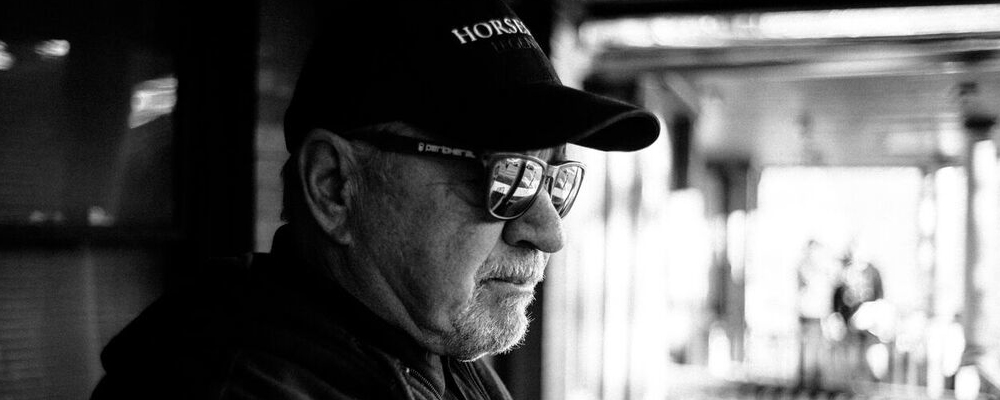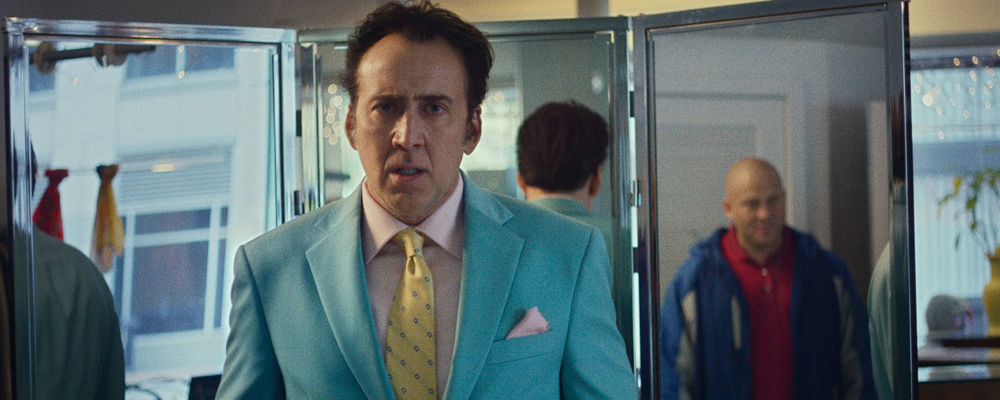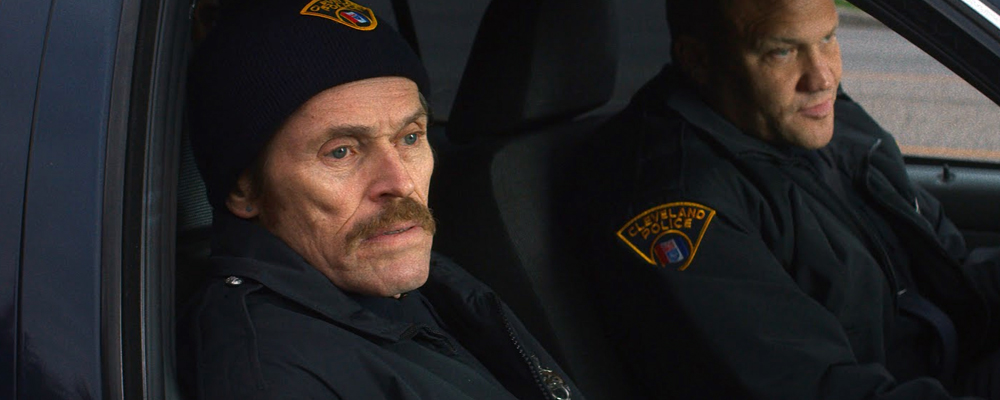Film Legend Paul Schrader Talks About Taking on More Challenges With ‘Dog Eat Dog’
Sandra Miska
It’s been 40 years since Martin Scorsese’s “Taxi Driver” shocked and awed audiences and brought acclaim to screenwriter Paul Schrader. He also contributed to Scorsese’s “Raging Bull” and has written and directed many other films, including “The Canyons,” starring troubled celebutante Lindsay Lohan and porn star James Deen.
For his latest directorial effort “Dog Eat Dog,” Schrader collaborated with screenwriter Matthew Wilder to adapt Edward Bunker’s crime novel about a trio of criminals (Nicolas Cage, Willem Dafoe and Christopher Matthew Cook) on their biggest job yet. Schrader spoke with EV about the challenges involved in making this dark crime drama, the future of cinema, and the legacy of “Taxi Driver.”
What attracted you to Edward Bunker’s novel?
I came into it backwards. Nic Cage and I wanted to work together again because of a bad experience we had had, and we were just looking for something. Then I happened to read the script and I thought, “Hey, maybe this is the one for us to work on together again,” and sort of redeem myself from that experience that I had before. And that’s how it happened. I really didn’t set out to do a crime film. I’m not a crime film director, but this was the right opportunity for Nic and I to work together with final cut and do a film that we would be proud of, and then I had to figure out how to make a crime film.
What was that experience like, figuring out how to make a crime film?
That was the fun part of it. Every film has some kind of unique challenge, and the new challenge for me on this one was figuring out what a crime film looks like in 2016, particularly one which has such an overused kind of plotline, three ex-cons on their final score kind of thing. So, I set about trying to reconfigure the genre for today’s audiences.
You’ve spoken before about losers make for more interesting protagonists. Why do you think that is?
Well, I don’t know if ‘losers,’ per se, is the right word, but the essence of character is contradiction. People who act against their own best interests, you know, “I loved her so much I hit her,” that’s what makes character interesting. During stories about those types of characters, it’s not unusual that they start moving toward self-disintegration and I guess that’s certainly kind of the description of a loser.
What’s interesting about the arts is that it’s not a solution; it’s an exploration. You can solve a problem, but you cannot solve a mystery or a conundrum. And, so, characters are initially a conundrum, so you can explore character and you can have viewers from different backgrounds identify with a character for different reasons, and it all still works.
Willem’s character talks a lot about change. Do you believe that someone who engages in criminal activity at that level can really change, or do you think they’re too far-gone?
The theme of all of Ed Bunker’s work was that once you are in the life of crime you can never get out. He, of course, was the exception to his own rule. I would be careful before taking this film quite so seriously. I mean, it is kind of a riff on the genre. In my mind, it’s as much about crime films as it is about criminals. These three guys, part of them knows that they’re in a crime film together, and it’s not very faithful to Ed Bunker in that way, because Ed Bunker’s sensibilities came from the ’60s, the book was set in the nineties, and now I’m trying to do it in the 2010s, so being faithful to Bunker was not on the top of my priorities. Trying to catch this odd moment we’re in now was more of a priority.
“Dog Eat Dog,” like so many films coming out today, will be released on VOD while it is in theaters. Do you believe that VOD and digital platforms have changed filmmaking? You have spoken in the past about the possibility of movie theaters becoming extinct all together.
Well, I mean, theatrical is becoming a niche market, and there will always be a place for theatrical. But, it is no longer a central market. The idea of a projected image in a dark room in front of an audience is really a 20th-century phenomenon. The challenge now is that there is so much product coming in, 400 scripted TV shows and 30 films a week. The challenge is how to monetize VOD. These films go into theaters and often times they’re just breaking even. The ones you think are successful are just breaking even. They’re making their money on VOD.
This is your first film that you’ve acted in. What was that experience like?
I certainly didn’t want to, and I won’t again. Some other people were going to do it, then Scorsese was going to do it, and one thing happened, then another, then it was the end of the shoot and we were running out of money, and Nic said, “Why don’t you just do it?” So I did it.
A major piece of advice that you give to filmmakers in interviews is “don’t be boring.” What are the mistakes that you feel filmmakers make that cause their films to fall flat, and how do you think they can change?
There are so many different ways a film can go wrong. When a film goes right, it’s in some degree a mystery even to the filmmakers themselves, because they feel luck and serendipity have a part to play in it. If artists knew how to correct their errors, there would be a lot more great art.
What’s next for you?
I’m doing a film with Ethan Hawke and Amanda Seyfried. It’s completely different from this, more of a quiet, contemplative film. Two words that you can’t use to describe “Dog Eat Dog” are quiet and contemplative.
So it’s not a crime film?
(Laughs.) No, not at all.
“Taxi Driver” is such a classic film that everyone loves. With the election and everything else going on in the world, how do you think Travis Bickle would react if he were alive during this time?
It’s amazing that he still has currency in our culture. The actual character obviously died some 40 years ago; he’s on a death trip. It is kind of surprising how every generation of young people, particularly young men, seem to reinvest this character. Usually, it’s right around the age of 15, 16, 17 that this becomes an interesting film for young men who are graduating from action films into more serious films. When you get involved with a film that has a legacy, and a film that lives on, you’re just thankful. There’s no way to plan for that.
If he lived in 2016, do you know what he would be up to or how he would vote? Or is that just up to us to imagine?
Oh, I don’t know. That’s too much of a hypothetical.
“Dog Eat Dog” opens Nov. 4 in Los Angeles and New York and will expand to other select cities and VOD Nov. 11.



